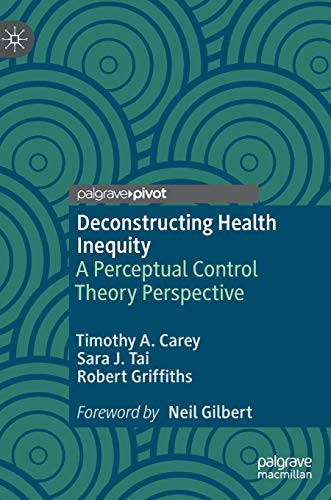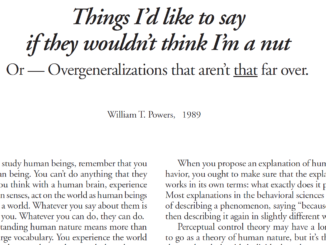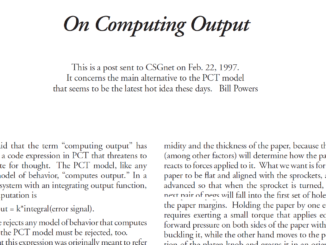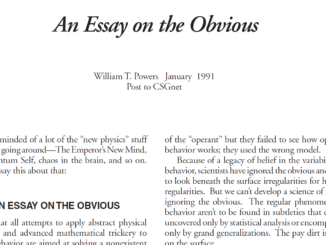Timothy A. Carey, Sara J. Tai, and Robert Griffiths

Palgrave Macmillan; 1st ed. 2021 edition (April 5, 2021)
Book Description
This book offers a radically different perspective on the topic of health inequity. Carey, Tai, and Griffiths use Perceptual Control Theory (PCT) to deconstruct current approaches to understanding, investigating, and addressing problems of health inequity. In the book, the authors propose that health inequity is not a problem per se. Disrupted control, they argue, is the problem that needs to be addressed.
From this perspective, research, policy, and health practices directed at addressing health inequity in isolation will offer only partial solutions to the problems created by disrupted control. Addressing problems of disrupted control directly, however, has the potential to entirely resolve issues that are created by health inequity.
The authors have extensive clinical and research experience in a wide range of contexts, including: cross-cultural settings; rural, remote, and underserved communities; community mental health settings; prisons; schools; and psychiatric wards. Drawing on these diverse experiences, the authors describe how adopting a Perceptual Control Theory perspective might offer promising new directions for researchers and practitioners who have an interest in addressing issues of inequity and social justice. With a Foreword written by Professor Neil Gilbert this book will provide fresh insights for academics, practitioners, and policymakers in the fields of public health, psychology, social policy, and healthcare.
Editorial Reviews
“The book meets the objective of explaining scientific research quite well … . The target audience is healthcare personnel, especially those in the mental healthcare field. The book also would be of interest to anyone in the areas of public health, public medical policy, or studies of inequality and inequity. … This book has value in the way it draws attention to the problems of correlation vs. causation, especially using vast vague notions like ‘inequity’ as causal variables.”
Eugene N. Anderson, Doody’s Book Reviews, August 6, 2021)



